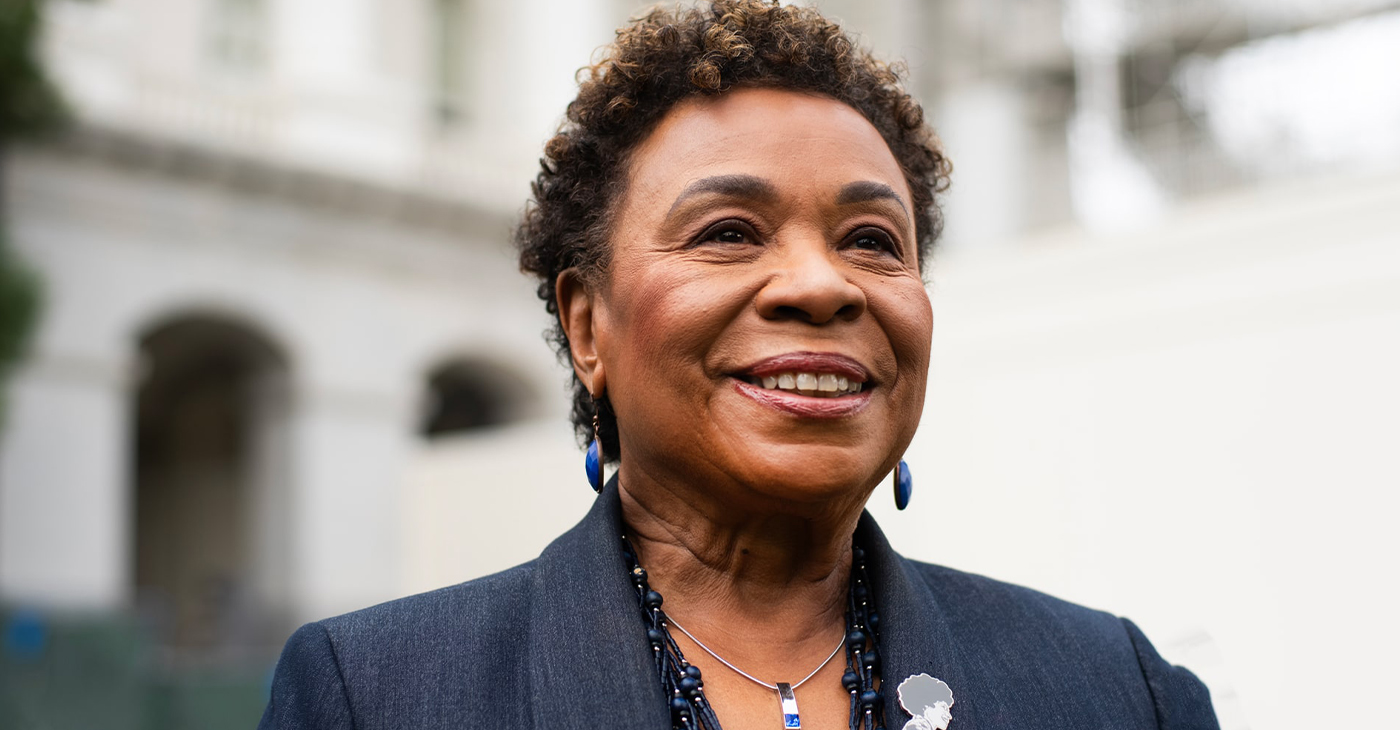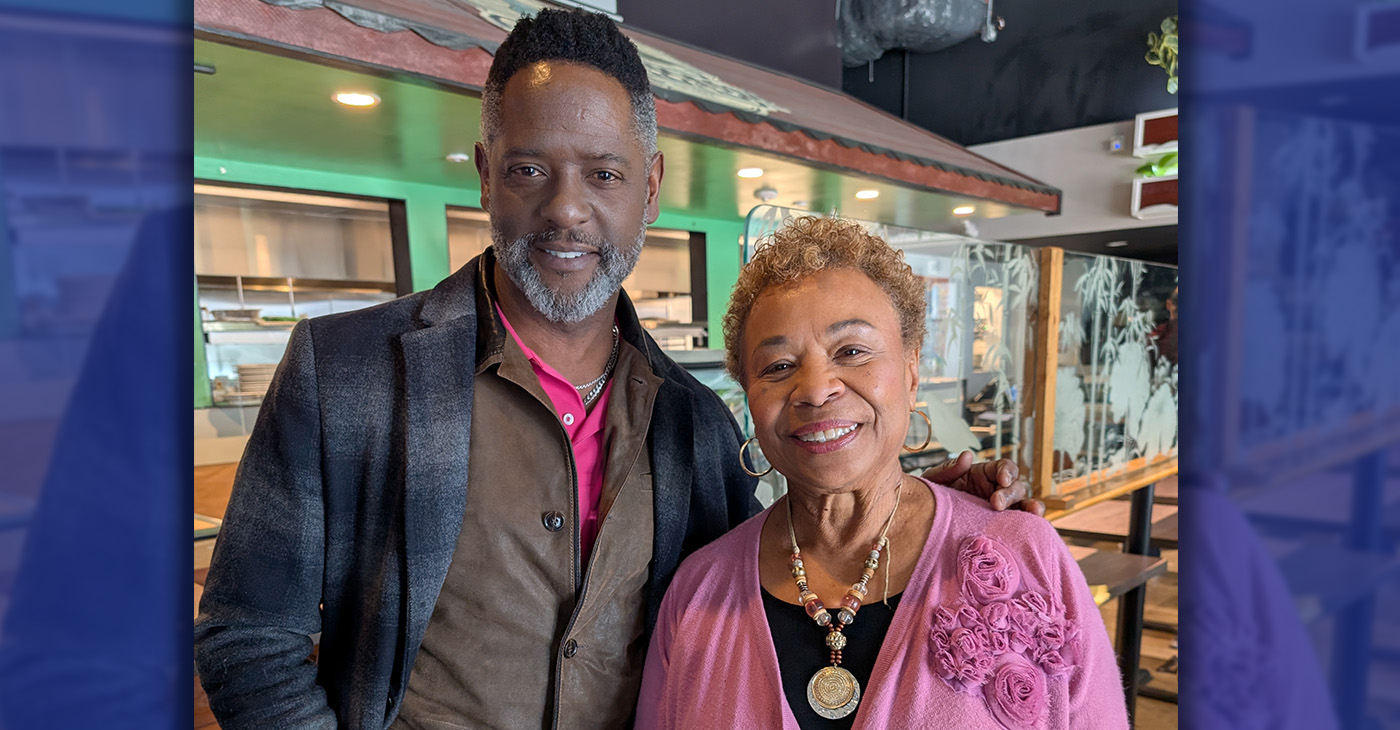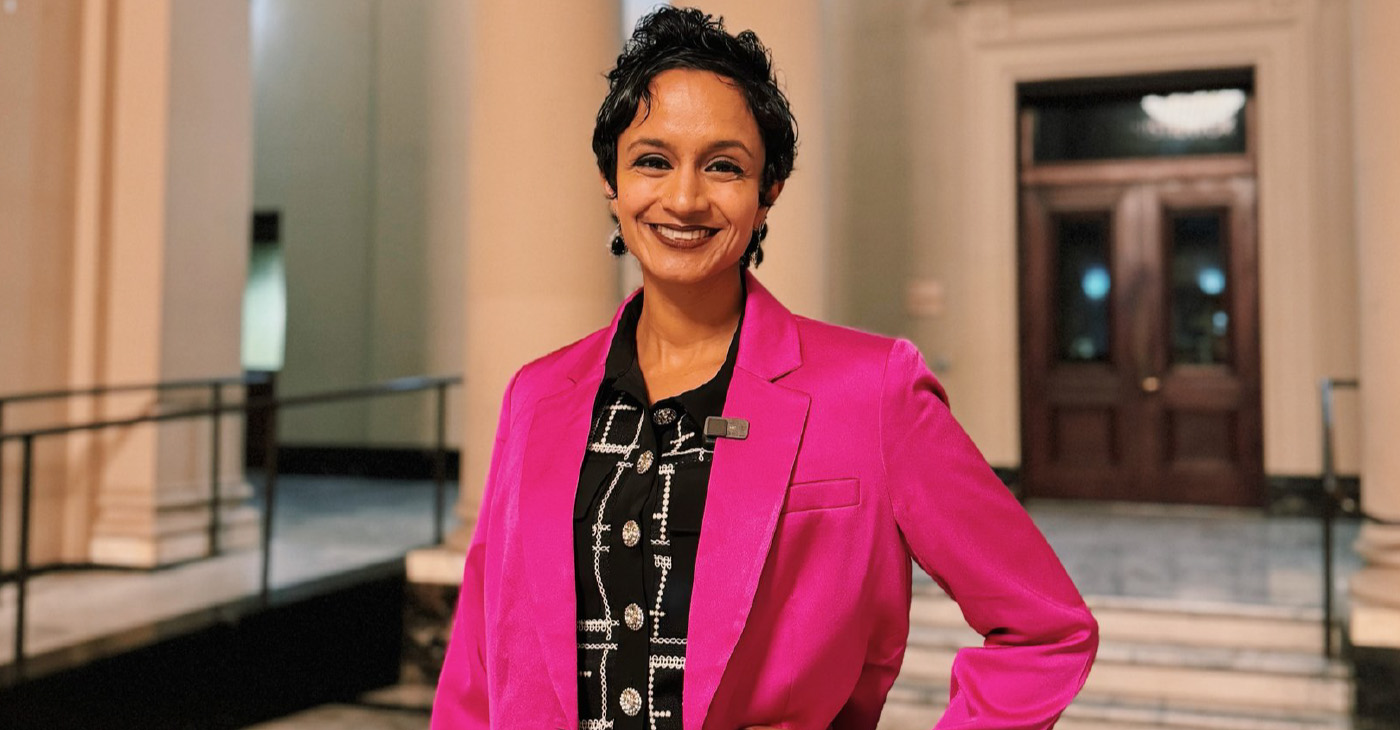Op-Ed
Focus on Real Black Women, not Imposters
By Julianne Malveaux
NNPA Columnist
By the time you read this, perhaps the disturbing story of Rachel Dolezal, the prevaricating White woman who passed for Black, led the Spokane NAACP, and wove a web of elaborate lies, would have receded from media headlines. Probably not. I expect additional disclosures, a book, and a reality show. While most African Americans have concluded that Dolezal is a mentally impaired liar, too many Caucasians, obsessed with race, are likely to give this story legs.
Meanwhile, there are millions of African American women who are rendered invisible by the media. If Matt Lauer wants to focus on the women in the NAACP, he ought to interview Roslyn Brock, the chair of the NAACP board. If he wants to look at the women who lead organizations, he should focus on Melanie Campbell (National Coalition for Black Civic Participation) or Sherilyn Ifill (NAACP Legal Defense and Educational Fund). These women can add substance, not sensationalist fluff, to a conversation about women and race.
Where is the 15-minute interview of Dajerria Becton, the teenager who, bikini-clad, was brutally dragged by her hair at a Texas pool party? Where is the follow-up on Renisha McBride, the teen who was killed by a crazed White man from behind his locked screen door? When have any of the African American women in Congress been featured in the lengthy interviews that others in Congress routinely get? Admittedly, lengthy profiles don’t happen often, but when they do happen, African American women certainly aren’t the focus of them.
The presence of African American women in media is much improved in some respects from just a decade ago. MSNBC anchor Melissa Harris-Perry brings a welcome approach to issues, Gayle King and Tamron Hall diversify a morning news lineup that was once far more homogeneous, and Gwen Ifill bring a necessary gravitas to evening news, and Donna Brazile is an important part of the commentariat. While those who bring the news are more diverse, the content of news is much less so, and frivolous sensationalism is often given more visibility than substance.
African American women are also ignored by our natural allies, the White women who lead women’s organizations. To be sure, we can count on NOW’s Terry O’Neill to be an advocate for social and economic justice issues. She has been a reliable ally to the Rainbow PUSH Coalition, a regular presence on Rev. Jesse Jackson’s radio program (disclosure – I’ve been on the program with her on occasion), and a supportive force at national conventions. Still, Roland Martin was right to take her on regarding her silence around the way Dajerria Becton was brutalized. Truth be told, NOW should also be chastised for the many ways African American women, and our issues, are ignored by the nation’s premier women’s organization. In the words of Sojourner Truth, “Ain’t I A Woman?”
Now that the Treasury Department has agreed that a woman will be on the U.S. currency by 2020, and Treasury Secretary Jack Lew is seeking input on which women through a Treasury department website. A self-described grassroots organization called Women on 20s delivered a petition to President Obama in May, calling for a woman to appear on the $20 bill. Of the 600,000 people who signed the petition, the most people selected Harriet Tubman to appear on the bill, with Eleanor Roosevelt being the second choice. Wouldn’t it be great if majority women’s organizations pushed for an African American woman to grace our currency? It would certainly go a long way toward recognizing instead of ignoring Black women.
The United Nations has designated 2015-2024 the International Decade for People of African Descent. The theme of the decade is recognition, justice and development. The U.N. General Assembly has released a resolution that includes objectives and a program of activities for the decade. What if the media spent as much time on this as they have spent on a troubled imposter? To the extent that women of African descent around the globe experience similar histories and oppressions, such coverage could be informative and educational.
Because African American women are too often invisible (or underrepresented) in the media and elsewhere, it is especially galling to watch the endless Dolezal coverage. Are African American only interesting when we are being portrayed by a confused wannabe Black woman? What about the real Black women? And what about asking African American women what they think about this nonsense to get interesting perspectives on this sideshow?
What about looking at the “passing” phenomenon from an African American perspective (nobody knows how many African Americans passed for Caucasian to gain access to opportunities, educational and financial, during the Jim Crow days)? If Rachel Dolezal’s chicanery is to be covered by the media, it ought at least be placed in context. Sojourner Truth said, “I have plowed, and planted, and gathered into barns, and no man could head me! And aren’t I a woman?”
Dolezal has neither plowed nor planted. Her hijinks should be ignored, not glorified.
Julianne Malveaux is a Washington, D.C.-based author and economist. She can be reached at www.juliannemalveaux.com.
###
Activism
Oakland Post Endorses Barbara Lee
Barbara Lee will be able to unify the city around Oakland’s critical budget and financial issues, since she will walk into the mayor’s office with the support of a super majority of seven city council members — enabling her to achieve much-needed consensus on moving Oakland into a successful future.

As we end the celebration of Women’s History Month in Oakland, we endorse Barbara Lee, a woman of demonstrated historical significance. In our opinion, she has the best chance of uniting the city and achieving our needs for affordable housing, public safety, and fiscal accountability.
As a former small business owner, Barbara Lee understands how to apply tools needed to revitalize Oakland’s downtown, uptown, and neighborhood businesses.
Barbara Lee will be able to unify the city around Oakland’s critical budget and financial issues, since she will walk into the mayor’s office with the support of a super majority of seven city council members — enabling her to achieve much-needed consensus on moving Oakland into a successful future.
It is notable that many of those who fought politically on both sides of the recent recall election battles have now laid down their weapons and become brothers and sisters in support of Barbara Lee. The Oakland Post is pleased to join them.
Activism
Actor, Philanthropist Blair Underwood Visits Bay Area, Kicks Off Literacy Program in ‘New Oakland’ Initiative
These community activations were coordinated with the San Francisco-based non-profit program “Room to Read.” Ray said he is also donating his time to read and take pictures with students to encourage their engagement and to inspire them to read more. The inspirational book “Clifford Ray Saves the Day” highlights Clifford Ray’s true story of saving a dolphin.

By Paul Cobb
New Oakland Series
Opinion Part 3
The Post mentioned three weeks ago that a number of our local luminaries were coming together to support the “New Oakland” movement. As this current national administration continues to eliminate our “legacy” institutional policies and programs left and right, most communities find themselves beyond “frozen” in fear.
Well, esteemed actor, long-time Bay Area supporter, and philanthropist Blair Underwood returned to Oakland this week to speak with city leaders, community trust agents, students, the Oakland Post, and local celebrities alike to continue his “New Oakland” initiative.
This week, he kicked off his “Guess Who’s Coming to Read” literacy program in some of Oakland’s middle schools. Clifford Ray, who played the center position of the 1975 World Champion Golden State Warriors, donated close to 1,000 books. Ray’s fellow teammate Charles “The Hopper” Dudley also gave Converse sneakers to students.
These community activations were coordinated with the San Francisco-based non-profit program “Room to Read.” Ray said he is also donating his time to read and take pictures with students to encourage their engagement and to inspire them to read more. The inspirational book “Clifford Ray Saves the Day” highlights Clifford Ray’s true story of saving a dolphin.
Underwood also spent quality time with the Oakland Ballers ownership group and visited the amazing Raimondi Park West Oakland community revitalization site. In the 1996 TV film Soul of the Game, Underwood played the role of the legendary first Black Major League Baseball player Jackie Robinson and commended the Ballers owners.
“This group of sports enthusiasts/ philanthropists needs to be applauded for their human capital investment and their financial capital investment,” Underwood said. “Truly putting their money and passion to work,” Underwood said.
Underwood was also inspired by mayoral candidate Barbara Lee’s open-minded invitation to bring public-private partnership opportunities to Oakland.
Underwood said he wants to “reinforce the importance of ‘collaborative activism’ among those most marginalized by non-empathic leadership. We must ‘act out’ our discomfort with passionate intentions to create healthy change.”
Activism
Councilmembers Ramachandran, Kaplan, Unger Identify Funds to Save Oakland Fire Stations
Our budget crisis – one of the worst in Oakland’s history – is compounded by the fact that people do not feel safe coming to Oakland due to our public safety crisis. By investing in our fundamental public safety resources today, we can send a signal to the world that Oakland is open for business. We have such a rich and vibrant culture, arts, and food scene that is worth celebrating – but we can only showcase this if we are able to keep our neighborhoods safe. Having fully functioning fire stations are absolutely essential to these efforts.

By Janani Ramachandran
There is no greater concern to the people of Oakland today than public safety. Fire stations are the bread and butter of essential city services – and every day that we have stations shuttered, we imperil the lives of our community members. In response to widespread outcry over the current and planned closure of stations, myself, along with Councilmembers Kaplan and Unger, have painstakingly worked to identify millions of dollars of new funding to save our stations. The legislation we introduced on Thursday, February 13th, will amend our budget to prevent the closure of four fire stations that are currently on the chopping block due to our budget crisis and will re-open two closed stations that have already been closed – Station 25 and 28 – in the near future. The resolution that will provide the funding to keep our stations open will go before the full City Council for a vote at our meeting on Tuesday, March 4th at 3:30 PM – and we invite you to join us at City Hall to share your perspective on the topic.
Our budget crisis – one of the worst in Oakland’s history – is compounded by the fact that people do not feel safe coming to Oakland due to our public safety crisis. By investing in our fundamental public safety resources today, we can send a signal to the world that Oakland is open for business. We have such a rich and vibrant culture, arts, and food scene that is worth celebrating – but we can only showcase this if we are able to keep our neighborhoods safe. Having fully functioning fire stations are absolutely essential to these efforts.
With the devastating Los Angeles fire at the top of people’s minds, terrible memories of Oakland’s own wildfires are re-surfacing from the 1991 Oakland Hills Firestorm to the Keller fire just a few months ago – and how essential fire stations are to mitigating these catastrophes. But in Oakland, our fire stations don’t just fight wildfires – they also provide emergency medical services to our most vulnerable constituents, put out structural fires and encampment fires, and much more.
We recognize that there are a number of competing interests and important initiatives fighting for sparse City resources. But from my perspective, core safety services are the most pivotal functions that a City must spend its resources on – especially given the outcry we have heard around fire stations.
The fight to save our stations is not over. The resolution we introduced is a critical first step, and there are hurdles to overcome. If you support keeping our fire stations open, we invite you to be a part of the solution by making your voice heard at the March 4th City Council meeting at 3:30 pm.
-

 Activism3 weeks ago
Activism3 weeks agoWe Fought on Opposite Sides of the Sheng Thao Recall. Here’s Why We’re Uniting Behind Barbara Lee for Oakland Mayor
-

 Activism4 weeks ago
Activism4 weeks agoFaith Leaders Back Barbara Lee for Mayor, Criticize Candidate Loren Taylor for Dishonest Campaigning
-

 #NNPA BlackPress4 weeks ago
#NNPA BlackPress4 weeks agoRev. Dr. Jamal Bryant’s Black Church Target Boycott Mobilizes 150,000
-

 Activism3 weeks ago
Activism3 weeks agoOakland’s Most Vulnerable Neighborhoods Are Struggling to Eat and Stay Healthy
-

 #NNPA BlackPress4 weeks ago
#NNPA BlackPress4 weeks agoRecently Approved Budget Plan Favors Wealthy, Slashes Aid to Low-Income Americans
-

 Activism4 weeks ago
Activism4 weeks agoGroup Takes First Steps to Recall District Attorney Diana Becton
-

 Activism2 weeks ago
Activism2 weeks agoOakland Post Endorses Barbara Lee
-

 Activism4 weeks ago
Activism4 weeks agoOakland Post: Week of March 19 – 25, 2025























































